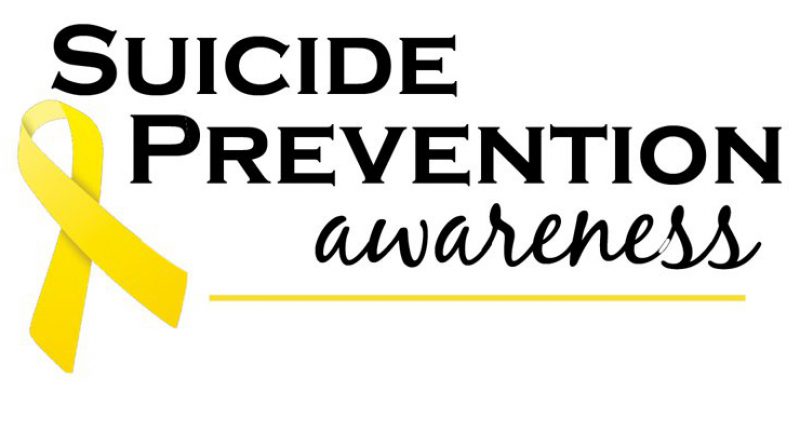

Suicide Prevention: What to Say and What Not to Say
August 26, 2024 by Counseling and Wellness Center of Pittsburgh suicide, suicide awareness, suicide awareness month, suicide prevention, suicide prevention month, suicide warning signs, what not to say to someone who is suicidal, what to say to someone who is suicidal 0 comments
September is Suicide Prevention Month, a time to raise awareness, provide resources, and offer support to those who may be struggling with suicidal thoughts. It’s a month that underscores the importance of compassion, understanding, and connection in preventing suicide. The purpose of Suicide Prevention Month is not only to educate people about the signs of suicidal ideation but also to equip them with the right tools and language to engage in meaningful conversations with those who may be feeling hopeless.
One of the most critical moments in suicide prevention is how we respond to someone expressing suicidal thoughts. Our words can have a significant impact, potentially opening the door for healing or closing it. Knowing what to say—and what not to say—can be lifesaving.
Suicide Prevention: What to Say
When someone confides in you that they are experiencing suicidal ideation, it can be a shocking and overwhelming moment. However, it’s crucial to respond with empathy, compassion, and non-judgmental support. Here are some phrases you can use:
- Let them know you care and they are not alone: Saying something as simple as, “I’m here for you, and I care about you. You don’t have to go through this alone,” can be incredibly powerful. It reassures the person that they are not facing their pain in isolation.
- Acknowledge their feelings without trying to fully understand them: It’s important to remember that you can’t truly know what someone else is going through, but that doesn’t mean you can’t offer support. Try saying, “I can’t fully understand what you’re going through, but I’m here to listen and try to support you.” This lets them know that you are there to help, even if you can’t experience their emotions firsthand.
- Avoid judgment or blame: Many people fear opening up about their suicidal thoughts because they worry about being judged. To counteract this, you can say, “I’m not here to judge you. I just want to understand what you’re feeling and how I can help.” This helps create a safe space for the person to express themselves without fear of criticism.
- Reflect their feelings back to them: Sometimes, repeating what they’ve said can help them feel heard and validated. For example, “It sounds like you’re feeling overwhelmed and unsure of what to do next. Did I get that right?” By doing this, you show that you’re actively listening and trying to understand their emotional state.
- Ask about their reasons for living and dying: Encouraging someone to articulate what’s contributing to their feelings can help them process their emotions. You might say, “Can you tell me more about what’s making you feel this way? What makes life feel hard right now?” This opens the conversation for them to explore their thoughts and feelings.
- Help Them Focus on Their Support System: It can be beneficial to gently remind someone about the support they have, including pets or therapists. You might say, “I know it can feel overwhelming right now, but I want you to remember that there are people and resources available to help you through this. Whether it’s a therapist you’ve worked with, a pet that brings you comfort, or someone else who cares about you, it’s important to recognize that you don’t have to face this alone.” This approach can help them see that support is available and that they have options for finding comfort and assistance.

- Offer to help them find a therapist or a greater level of care: You might offer to assist them in finding a therapist or exploring higher levels of care, such as an Intensive Outpatient Program (IOP), Partial Hospitalization Program (PHP) or inpatient treatment if needed. You could say, “Would you like me to help you find a therapist or explore other options for support? I can help you look into resources and make connections if that would be helpful.”

Suicide Prevention: What Not to Say
While it’s important to know what to say, it’s equally critical to understand what phrases can cause harm. Some well-intentioned comments can unintentionally minimize a person’s feelings or make them feel unheard. Here are some things to avoid:
- Offering simple solutions to complex problems: Suggestions like, “Have you tried just getting more sleep?” or “Maybe you should leave that job,” can make the person feel like their emotions are being trivialized. Suicidal thoughts often stem from deep emotional pain, and quick fixes can seem dismissive.
- Telling them to ‘cheer up’ or ‘snap out of it’: Comments such as, “Come on, just snap out of it,” or “You’re tougher than this,” invalidate their feelings. Suicidal thoughts are not a sign of weakness, and these phrases may make the person feel ashamed or misunderstood.
- Changing the subject: When someone shares that they are suicidal, it’s crucial to stay in the conversation. Statements like, “Let’s not talk about this now,” or “Have you seen that new movie?” shift the focus away from their distress and can make them feel like their pain is unimportant.
- Comparing their situation to others’: Telling someone, “At least you’re not homeless,” or, “Some people have it much worse,” minimizes their struggles and can make them feel guilty for how they’re feeling.
- Downplaying their emotions: Saying, “You’re just having a bad day,” or, “It’s just a rough patch,” ignores the severity of their emotions and may prevent them from opening up further.
- Making assumptions or offering unsolicited advice: Telling someone, “You should exercise more,” or, “You need to focus on the positives,” presumes you have the solution to their struggles, which can come across as patronizing.
- Telling them they’re being dramatic or seeking attention: Comments like, “You’re being dramatic,” or, “You’re just trying to get attention,” can be deeply hurtful and invalidating. They dismiss the person’s feelings and may push them further away.
Crisis Resources
If you or someone you know is in immediate danger or needs urgent support, it’s important to reach out to crisis resources:
- National Suicide Prevention Lifeline: 988 (available 24/7 for crisis support)
- Crisis Text Line: Text “HELLO” to 741741 (available 24/7 for text support)
- Emergency Services: Call 911 if someone is in immediate danger
Pittsburgh-Only Suicide Prevention Resources
- CRISIS LINE (Westmoreland County): 1-800-836-6010
- Resolve Crisis Network (Allegheny County): 1-888-796-8226
Suicide Prevention Month is an important time to raise awareness and show support. Approaching those who are struggling with compassion and care can truly make a difference. By listening, validating, and offering non-judgmental support, you help create a space where they can feel understood and less alone. There are no perfect words, but simply being present and empathetic can provide the connection and comfort that might help someone through a difficult time.
Reviewed by: Counseling and Wellness Center of Pittsburgh’s Founder & CEO Stephanie Wijkstrom, LPC
Related Posts
Know the Signs: “Baby Blues” vs. Postpartum Depression
March 1, 2023
A new baby, whether your first, second, or seventh, can come with a lot of other...
Suicide Prevention
June 8, 2018
With the suicide of two Hollywood Stars this week, both Kate Spade fashion...



